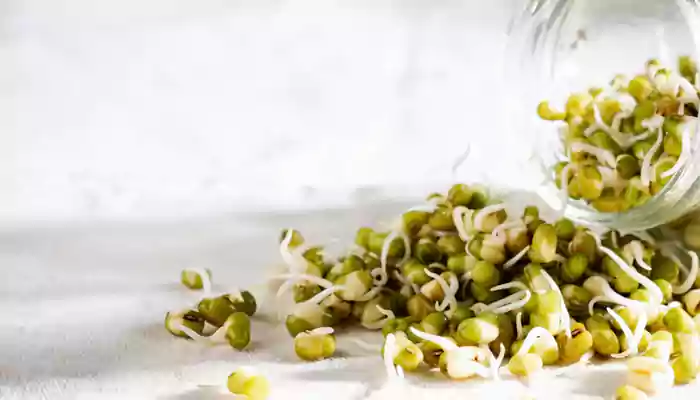Grow Sprouts – For The Health Of It!
Sprouts – those tiny, vibrant green shoots that seem to promise a burst of life and nutrition. They're not only a crunchy, delicious addition to your meals but also a powerhouse of essential nutrients.
- Ishani Karmakar
- 13 October, 2023
- 2 mins ago

Grow Sprouts – For The Health Of It!
Sprouts – those tiny, vibrant green shoots that seem to promise a burst of life and nutrition. They're not only a crunchy, delicious addition to your meals but also a powerhouse of essential nutrients.
If you've ever thought about growing your sprouts at home, now's the time to dive in. Let's embark on a journey to understand the health benefits of sprouts and how you can cultivate them in the comfort of your home.
The Nutritional Powerhouse – Why Sprouts?
Rich in Nutrients
Sprouts are a rich source of vitamins, minerals, and antioxidants. From vitamin C to iron, they are loaded with nutrients that can boost your immune system and overall health.
Digestive Health
Packed with enzymes that make digestion easier, sprouts can be a boon for your gut health. They also contain dietary fibre that aids in smooth digestion.
Low in Calories
Looking for a healthful snack that won't add to your waistline? Sprouts are your answer. They're low in calories but high in nutrition, making them an ideal food for weight-watchers.
Choosing Your Seeds
Before you jump into sprouting, it's essential to choose the right kind of seeds. Here are a few popular options:
Alfalfa: Known for its rich, nutty flavour and packed with vitamins.
Mung Beans: A favourite in Asian cuisines, they're crunchy and mildly sweet.
Broccoli: With a slightly spicy flavour, broccoli sprouts are known for their high antioxidant content.
Radish: If you're looking for a spicy kick, radish sprouts are the way to go.
Remember to buy seeds labelled for sprouting, as they'll be free from harmful chemicals.
The Sprouting Process – Step by Step
Step 1: Rinse and Soak – Begin by rinsing your chosen seeds under cold water. Then, soak them in a jar filled with water. Depending on the seed type, soaking times can vary from 3 to 12 hours.
Step 2: Drain and Rinse – After soaking, drain the water using a mesh lid or cheesecloth. Rinse the seeds under cold water.
Step 3: Set the Stage – Place the jar in a location away from direct sunlight. Ensure it's tilted at an angle, allowing any excess water to drain.
Step 4: Regular Rinsing – At least twice a day, rinse the seeds to keep them moist.
Step 5: Watch Them Grow – In a few days, you'll notice tiny sprouts emerging. Depending on the seed type, the sprouting process can take anywhere from 3 to 7 days.
Step 6: Harvest Time – Once the sprouts are ready, give them a final rinse and drain. Store them in the refrigerator, and they're ready to be consumed!
Health Benefits – More Than Just a Crunch

Boosting Immunity: Thanks to their high vitamin C content, sprouts can enhance your body's immune response.
Heart Health: Sprouts contain omega-3 fatty acids that can help reduce harmful LDL cholesterol levels.
Bone Strength: Rich in vitamin K, sprouts play a role in bone health by aiding calcium absorption and bone mineralization.
Skin and Hair: The vitamins and minerals in sprouts can give your skin a healthy glow and strengthen your hair.
Tips for Safe Sprouting
While sprouts are incredibly healthful, they can sometimes harbour harmful bacteria. To ensure safe consumption:
Always buy certified seeds meant for sprouting.
Rinse the seeds thoroughly before soaking.
Keep the sprouting jar clean and free from mould.
Consume sprouts within a week, and always store them in the refrigerator.
Growing sprouts at home is an easy and rewarding process. Not only do they add a burst of flavor and texture to your dishes, but they also come loaded with a myriad of health benefits. So, the next time you're looking for a nutritious addition to your diet, look no further than sprouts.








